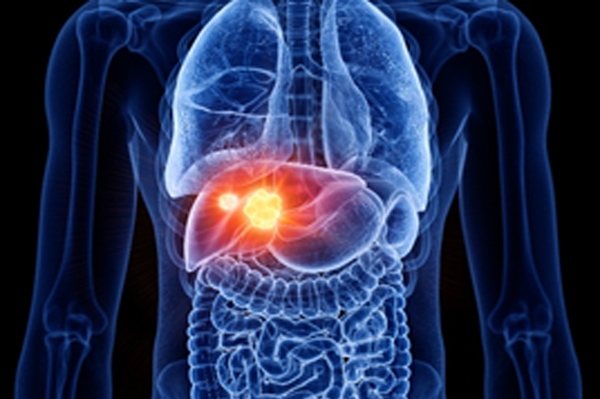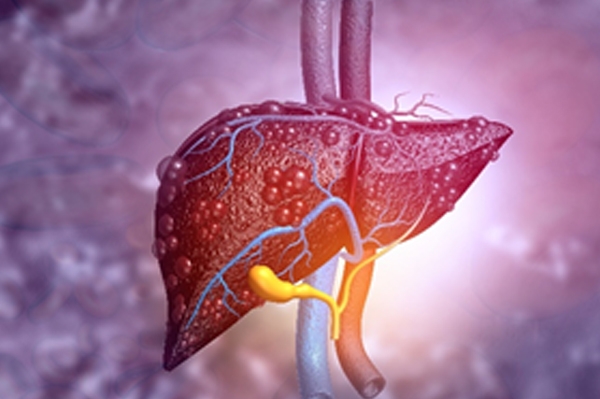Liver cancer: The dreadful disease

Hearing the word cancer itself sends shivers down our spines. Imagine the condition of those living with it? Cancer can affect any part of the body and the repercussions one has to face is the same. It is a life-threatening disease that can be controlled if diagnosed in its early stages. But, a relapse, that is very much possible. As such, until today there is no cure for cancer. But yes, many advanced stages of treatment plans have enabled people to lead a comfortable and long life. Some claim to have got cured from it too.
One of the mostly deadly forms of cancers is the one that affects the liver. There are many types of liver cancer. The most common type is known as hepatocellular carcinoma, which starts in a type of liver cell called hepatocyte. Other types of liver cancer include intrahepatic cholangiocarcinoma and hepatoblastoma. These are not very common.
It is observed and a known fact that Cancer that spreads to the liver is much more common than cancer that begins in the liver cells. For example, cancer could begin in the colon, stomach or the breasts and from there it can spread to the liver. This form of cancer is known as metastatic cancer.
Liver Cancer Causes
You may wonder as to what really causes Liver Cancer, right? Well, there sometimes is a cause determined, and sometimes, a perfectly healthy person with no adverse medical history can also get liver cancer. Some liver cancer causes have been determined, like:
- Mutation in the DNA of a person which eventually grows out of control and eventually forms a tumour which is a mass of cancerous cells.
- Chronic hepatitis infections can be a serious cause too.
One can never be sure of what is going on inside their body. Which is why, it is vital that with age, we too must get ourselves checked regularly by the doctor. A yearly whole body check-up can help determine if something is wrong and you could get treated in time. Many people have determined liver cancer causes at its early stage which has ultimately helped them fight the disease better. There is never a guarantee if people will survive it, but today, modern science can help improve the quality of life of many and help them lead a longer life.
Liver Cancer Symptoms
Liver cancer comes with many symptoms. Once a person starts experiencing them, they should immediately seek medical help. Watch out for these symptoms at all times, not just for yourself but also your loved ones. Also, you should know that in the early stages, most people do not experience any liver cancer symptoms. It is only when the cancer advances is when the body starts showing some of these liver cancer symptoms.
 Weight loss without even trying
Weight loss without even trying- Loss of appetite
- Pain in the upper abdomen
- Nausea and vomiting
- Weakness and fatigue
- Swelling of the Abdomen
- Yellow discoloration of the skin and the eyes
- White, chalky stools
Liver cancer symptoms may not always show up for every person who gets the disease which is why, schedule a yearly appointment or one when you experience such symptoms to rule out the possibility.
Liver Cancer Stages
The doctor uses stage grouping as a method to determine how advanced the Liver cancer is. The stage grouping is seen in Roman numerals from I, being the earliest stage to IV, being the most advanced stage.
Stage I liver cancer
At this stage, there is just a single mass in the liver that has not spread to any blood vessels.
Stage II liver cancer
At this stage, the single mass in the liver would have invaded blood vessels, or multiple tumors are in the liver, but they are less than five centimeters in width.
Stage III liver cancer
Stage III is further divided in three parts:
Stage IIIA: Multiple tumors are present in the liver and at least one is larger than five centimeters. At this stage, none of the tumors would have spread to the lymph nodes or anywhere outside the liver.
Stage IIIB: In this stage, the cancer would have spread to one of the main blood vessels in the liver but would have not reached the lymph nodes or any other vital organs.
Stage IIIC: At Stage IIIC, the tumors would have spread to nearby organs except the gallbladder, which lies under the liver. If not, then at least one tumor has extended into the outer layer of tissue that covers the liver. The cancer would not have spread to the lymph nodes or distant organs.
Stage IV liver cancer
Stage IV is further divided in two parts:
Stage IVA: Tumors of any size would have spread into lymph nodes near the liver. The cancer would not have reached the distant organs.
Stage IVB: The tumor has spread to distant organs, and there would be an invasion into nearby blood vessels and lymph nodes which may or may not be evident.
Liver Cancer Stage 4
As we mentioned earlier, stage IV has 2 parts: Stage IVA and Stage IVB. Once the disease progresses to the Liver Cancer Stage 4, there is no coming back. The cancer would have become out of control, and it would only be a matter of time until it consumes a person’s life.
Liver Cancer Test and Liver Cancer Treatment
Following are some of the Liver Cancer tests that maybe conducted by the doctor:
- Blood tests

- Imaging studies
- Ultrasound
- CT scans
- Hepatic Angiography
- Magnetic Resonance Imaging (MRI)
- Liver biopsy
- Laparoscopy
Depending on the stage and condition of a person with Liver cancer, following treatment options maybe suggested by a doctor.
Surgery is one of the most effective ways to cure liver cancer—either by taking out part of the liver or removing the whole organ during a transplant operation. The liver regenerates, so it is a great option for some.
Other options include:
- Liver transplant
- Liver Ablation
- Liver Chemotherapy
- Liver Embolization
- Liver Radiation
- Liver Targeted Therapy
It is only the doctor who can suggest which treatment option is the best. Nevertheless, being positive and happy can go a long way in ensuring that patients gets through the disease.
